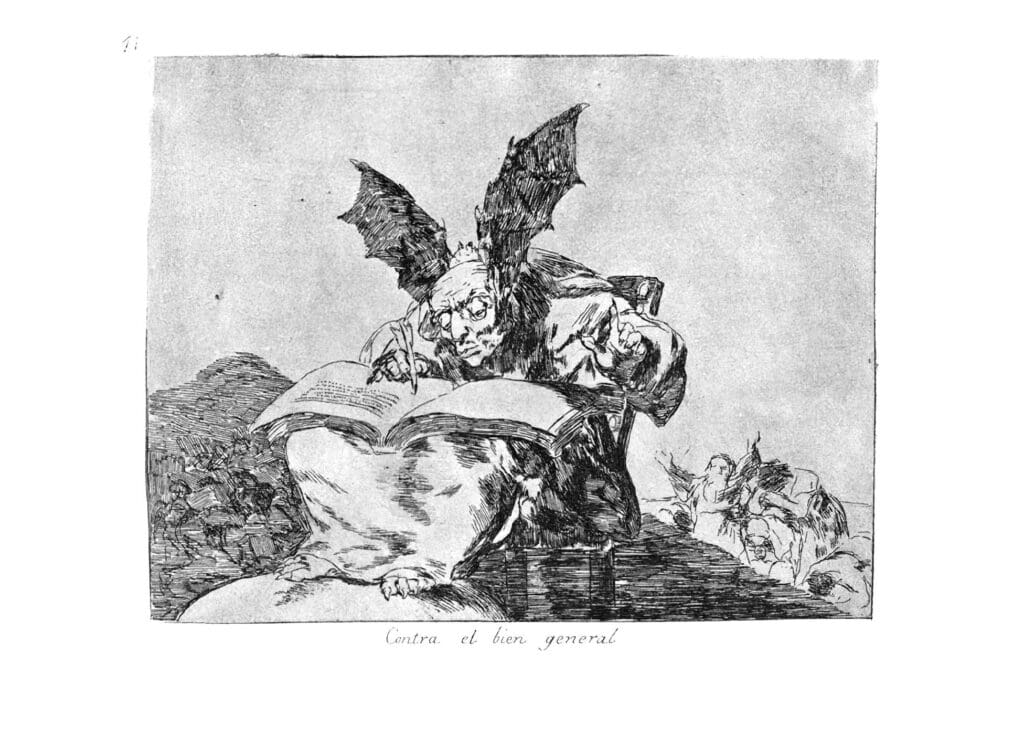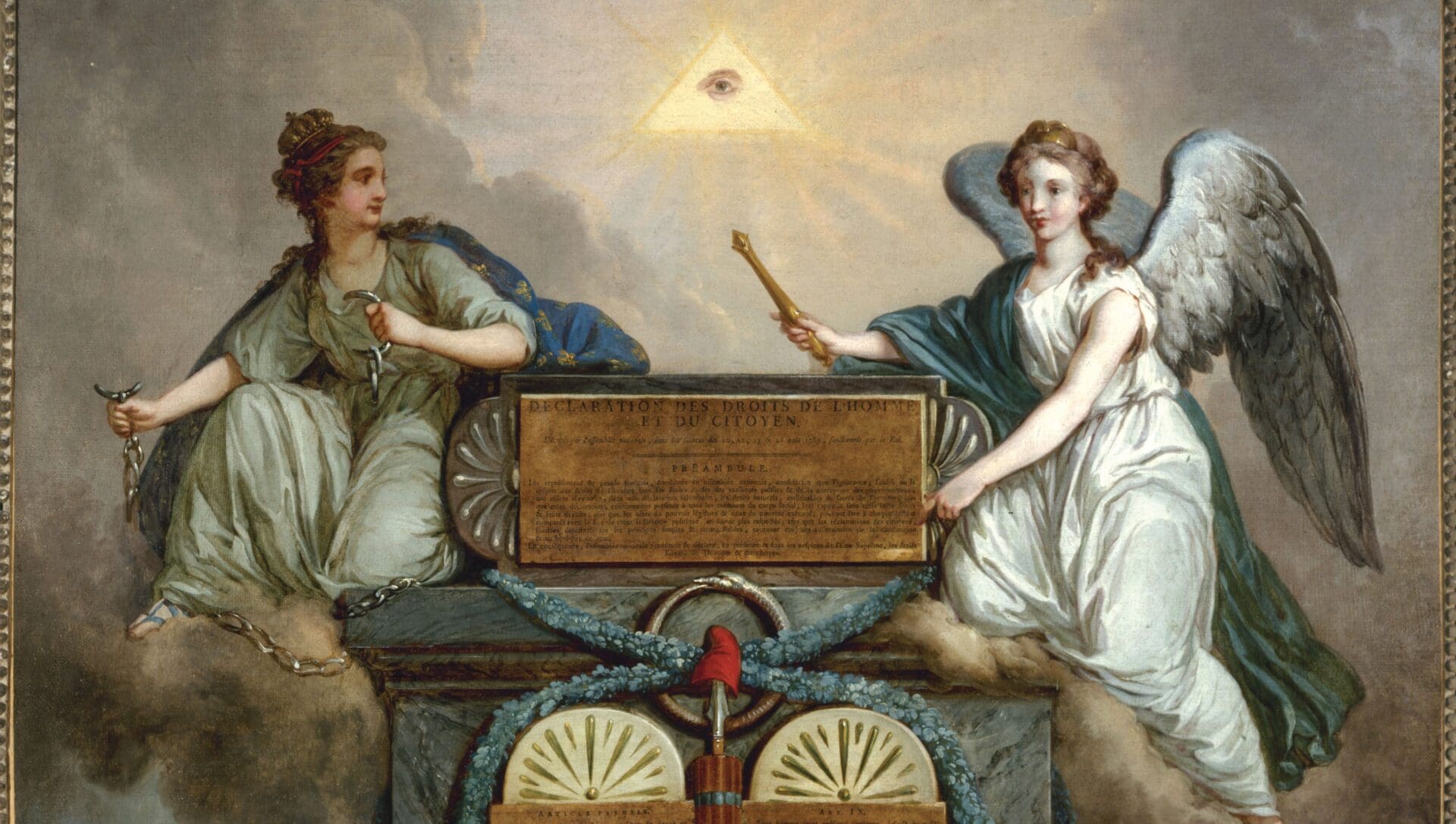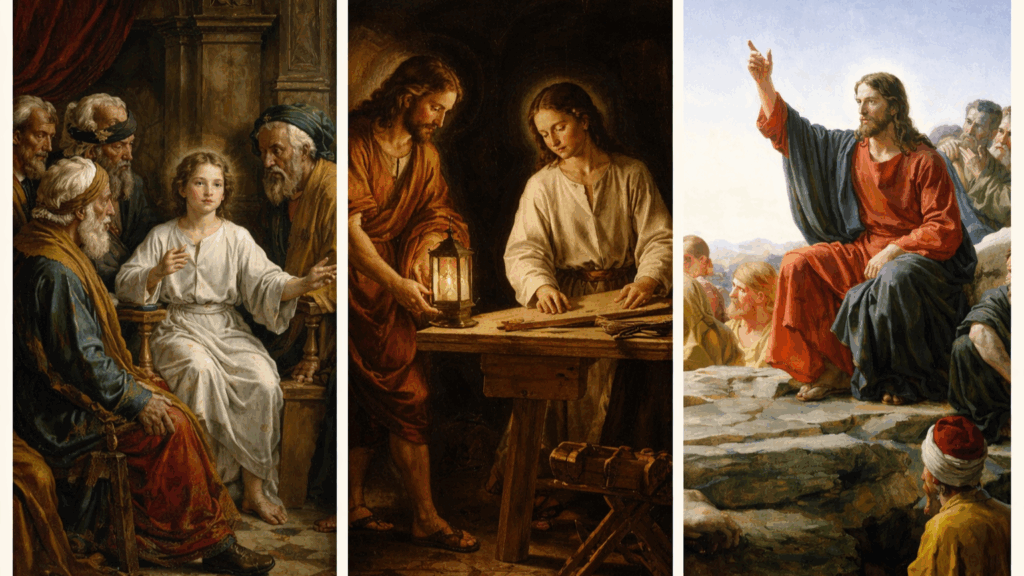This article was published in Vol. 3 No. 3 of the print edition.
For years, Hungary has been under regular attack from Brussels for allegedly failing to respect ‘European values’. It is worth examining these values to see if it is in any way wrong not to respect them in the way that the representatives of the liberal mainstream in the Western world expect, and whether our entire civilization should not instead perform a paradigm shift, radically transforming its values.
The Nietzsche-inspired title of my article is not accidental. Like the German philosopher, I myself am a radical transformer of the values that seem to dominate the Western world, though with different content, of course. And the ‘death of God’, a notion proposed by Nietzsche, will also have something to do with what I have to say. Since for the average Western individual of our time the existence of God is no longer self-evident, I will have recourse to arguments that can be acceptable also to non-believers. Adopting a kind of methodological atheism, I will bracket the existence of God for the purpose of this essay. From this, as I have already highlighted it in my previous article published in Kommentár,1 a methodological disanthropocentrism also follows. If I cannot assume the existence of God, and therefore that the universe is the result of conscious design, then I can assume that the world is indifferent to man and cannot believe that the universe is somehow taking the objectives of humans into consideration, or that there are mechanisms operating in it that help us in our endeavours automatically, by taking the responsibility for decision-making off our shoulders.
But ultimately, even people who assume the existence of God, gods, or other beings more powerful than us encounter a universe that is indifferent or hostile to them in their everyday experiences. The world is full of events that are unpleasant or even tragic for human beings, which, moreover, can befall both those who obey and those who disobey the precepts of a given religion, making it impossible to seriously believe that all our goals in this world can be achieved by spontaneous processes independent of us or by gaining the benevolence of superhuman powers. This also leads the believer to seek to bring as much of the world under his rational control as possible, which in turn requires an ever more thorough understanding of objective reality.2
‘European Values’
Increasing knowledge and the mastery it bequeaths are elemental interests of all people, regardless of worldview. And this rational control shall obviously not only be extended to subhuman nature, but also to the world of our own making, to society, where the fact that the aspirations of an individual may conflict not only with those of another, but also with the wider interests of society, poses a further challenge. One of the primary means of conscious control over the latter is morality, which cannot be encompassed solely by the ‘harm principle’, i.e., the prohibition of harming others’ lives or property. Equally important is the second function of morality, that of ensuring the enduring survival and flourishing of society as such, which must be consciously cared for, since, as has been said, there are no automatisms in the world that guarantee this independently of our human choices. Accordingly, I have already spoken in my previous article about a bifunctional morality, which I identified there with natural law in the classical sense. I use this expression with the same meaning as the phrase ‘natural moral law’.3 In the present essay, I will follow this terminology.
Let us first look at the European values for the violation of which proceedings may be launched against the member state concerned, based on Article 7 of the Treaty on European Union4 (hereinafter: Treaty). Based on Article 2 of the Treaty, these include human dignity, freedom, democracy, equality, the rule of law, and human rights.5 However, it should be noted that the preamble of the Charter of Fundamental Rights of the European Union6 offers a slightly different list of values: here, solidarity is listed instead of human rights, and democracy and the rule of law are mentioned as principles instead of values.
Nevertheless, human rights are not absent from the Charter either, since it tends to formulate the specific content of the listed values precisely in the form of human rights. It declares the right to life, inter alia, as part of human dignity; then, in the context of freedom, it mentions the classical human rights such as freedom of thought, conscience, religion, and expression; and, with regard to equality, it emphasizes equality before the law and the prohibition of any kind of discrimination. As for democracy, the Treaty also declares that the Union operates on the principles of representative democracy. Concerning the rule of law, both the Treaty and the Charter repeatedly stress the importance of the independence and impartiality of judges, among other things. We could go on and on, but there is nothing really surprising here compared with traditional human rights documents. In this spirit, the Union protects above all the freedom, rights, equality, etc. of the individual, and the preamble to the Charter clearly states that the Union ‘places the individual at the heart of its activities’.
How do these values relate to the preservation and functioning of a civilization? After all, the existence of a civilization is a prerequisite for the assertion and enforcement of any value. Thus, priority among values should be enjoyed by those that serve the existence of civilization, without which the six ‘European values’ listed above would not be possible either. The latter should therefore be subordinate to the former and, if necessary, limited.
In my view, the equality of individuals means, by and large, that everyone has an equal obligation to observe the norms necessary for the functioning of society and an equal right to engage in any behaviour7 that does not compromise its functioning, irrespective of gender, rank, mother tongue, ethnicity, colour, etc. Equality can only exist between individuals in this way, i.e., without discrimination. Individuals should be given the opportunity to conform to the same common set of moral standards without distinction in the above form. Equality of lifestyles, behaviours, preference systems, worldviews, and other similar identity-forming elements, on the other hand, is not automatic; it is necessary to examine to what extent each supports or threatens the order of civilization, and rank them accordingly.
With the above we have already given a possible formulation of freedom when we stated that everyone has the right to engage in forms of conduct that do not endanger the functioning of society. The difference between this concept of freedom and that of classical liberalism is obvious: the limitation of freedom of the individual is not merely the similar freedom of another individual. The limitation is the interest of society as a durable structure that survives individuals; one might also refer to this as the common good. It requires that individual freedoms be protected in a form compatible with the interest of society, and therefore it is unnecessary to mention the classical harm principle separately—since, for example, murder or theft obviously also disturb the order of society as a whole.
The same can be said of human rights. Their definition is logically preceded by a clarification of duties. Thus, both equality and freedom as well as human rights (which in part concretize this freedom) are based on a ‘residual principle’ in a particular sense. First, we clarify what we have to do to ensure the functioning of society, and then everything else, including ‘European values’ in the ‘Brussels’ sense, should be adjusted to fit within the remaining leeway.
The situation is similar also in the case of the other three values. Of these, the rule of law is mentioned relatively less frequently in the aforementioned EU documents, which also fail to define it. For the sake of simplicity, we shall use this expression in the following manner. Above all, the rule of law must mean that it is not the arbitrary will of those who exercise power that determines decisions, but the law, and therefore the institutions of the state behave in a predictable manner. Obviously, the rule of law in this sense may be a necessary condition for civilization, but it is by no means a sufficient condition. In any case, it must be complemented with the proviso that the content of the laws must also help the preservation and functioning of society.
Democracy is in itself neither a necessary nor a sufficient condition for the lasting survival of a civilization. It is well known that during most of human history democracies in the current sense of the word did not exist. It is another matter that within the actual conditions in the Western world today, in societies where the consciousness of human equality is already deeply rooted, it would be practically impossible to return to a system in which certain groups of people of age and sound mind (who are not banned from participating in public affairs) would not have political rights. Any such attempt would meet with fierce opposition. Therefore, we can only go forward, making the masses increasingly capable of making proper use of the political rights they have long possessed, i.e. supporting the passing of laws that are in accordance with natural law. The point is, democracy is only one of the possible means of doing this, though perhaps it is the only one in the current historical situation. People must therefore be educated to embrace the norms of natural law, and not to fall back on the harm principle alone, to take the common good to heart, to preserve the right traditions—which are in accordance with natural law and at the same time strengthen their sense of identity and thus increase community cohesion—to take care of the physical reproduction of the population, and so on.
However, other means must also be used to ensure that legislation is in line with natural law. The constitution must stipulate that the enforcement of certain values cannot depend on the opinion of the majority of the electorate, such as the priority protection of the institution of the traditional family (as the historically proven means of most effectively ensuring the reproduction of the population), or the duty to seek objective truth and full freedom of expression in both scientific and public discourse, without any taboos or censorship. The debate in these domains must be limited to the means to be used to secure them (I refer to a state based on such principles as ‘a state founded on rule of natural law’). This limitation of the possible choices that can be made democratically may offend liberal readers, but they should remember that liberalism is likewise aware of the problem of the ‘tyranny of the majority’, and seeks to ensure that certain values—namely, fundamental human rights—should not be superseded even in a democratic manner.
Human dignity is perhaps the most difficult of the six values to define. I have discussed the theoretical problems involved elsewhere.8 For now I will only underline that dignity should not be used as an excuse to impose norms that threaten the existence and functioning of society.
Each of these six values must therefore be subordinated to a seventh, which can be referred to using various terms: we can call it the common good, the social good, or the survival and functioning of society or civilization, but we can also say that all six should be subordinated to the natural law, which provides them. This is not required simply because we conservatives ‘prefer’ the public-good-centred approach which favours society over the excesses of the cult of individual rights. It is also in the vital interest of liberalism itself to maintain Western civilization, without which the six values have neither a carrier nor a defender. But paradoxically, and precisely in the interest of the survival of this civilization, these values must also be limited, preventing any application of them which would threaten their very premise, that is to say, this civilization. Of course, in this way, our civilization may no longer be referred to as ‘liberal’, but it may still retain more of the features that are dear to liberalism than if, in the absence of the necessary restrictions, it was completely destroyed.9
Community Values
The question now is whether the priority of the seventh value over the six ‘European values’ listed previously can be enforced if the spirit currently prevailing in the European Union and also expressed in its official documents prevails.
The preservation of civilization requires taking care of the natural conditions of society, the safekeeping and enrichment of the spiritual and material culture of previous generations, and, last but not least, the reproduction of the population. The first is ensured by the Union: for example, the Treaty repeatedly mentions in its preamble the protection of the environment or sustainable development. The preservation of culture and other related objectives are also repeatedly mentioned in the Treaty, the Charter, and other texts. However, this alone is not enough because certain elements belonging to this category (languages, traditions, historical memory, manners, behaviour patterns, and procedures) can only be actual if they are carried by human consciousness. If they exist only in books, they can be revived with difficulty or not at all. European values themselves are only alive and effective if there are subjects who accept, follow, and respect them. For this reason alone, the third factor, the preservation of a properly socialized population, is the most important of all. How well is this ensured by the EU’s system of values? Does it take priority when it comes into conflict with one of the six values? No provision stating this expressis verbis is to be found either in the Treaty or in the Charter, and it is well known that the actual practice of the Union is not very encouraging in this respect. True, in Article 52 of the Charter we read that the limitation of the ‘rights and freedoms’ may be provided for, but only if and in so far as ‘they are necessary and genuinely meet objectives of general interest recognized by the Union or the need to protect the rights and freedoms of others’. The latter option is of no interest to us now, since it only echoes the old liberal principle that an individual’s freedom should be limited only in order not to infringe upon the freedom of other individuals. But what are the ‘objectives of general interest recognized by the Union’? Can they be invoked, even against one of the six European values, in defence of the provisions ensuring the lasting existence of society?
‘The preservation of civilization requires taking care of the natural conditions of society, the safekeeping and enrichment of the spiritual and material culture of previous generations, and, last but not least, the reproduction of the population’
Well, we do not get a clear answer from either the Treaty or the Charter, and in actual practice, decisions which threaten the very survival of our civilization, going against the common good in the name of some other value (usually equality), are regularly taken. The Charter’s preamble includes a responsibility for the human community and for future generations, but the former can be interpreted as applying to people outside the Union, living today, while the latter presupposes the birth of future generations but does not make it our duty to bring them forth. True, Article 33 of the Charter provides for the protection of the institution of the family. If this meant that the traditional family based on a heterosexual marriage should enjoy priority support from the state, then this provision would indeed serve the purpose of reproducing the population. But the text of the article does not clarify what the family is, thus letting one of the individual-centred fundamental values (equality) prevail also in relation to this point, through the prohibition of discrimination, which does not promote but rather prevents the state from giving priority support to the traditional form of the family.
Some might say, of course, that there is no need to worry about Europe’s population decline today, because this can be offset by admitting migrants from the overpopulated non-Western world. However, even if this were true in terms of population figures, our civilization and its values can only be sustained by people who have been socialized in a European way and not by groups of people living in parallel societies, who are indifferent or even averse to the values of the West. Above all, the indigenous population of Europe should therefore ensure the reproduction of the EU’s population, and migration, with the exception of admitting the wrongfully persecuted and a few other extraordinary cases, should be fully stopped, while the assimilation of those already here should be accelerated. But we know that this is not what is happening, and those who advocate migration can also use equality as an argument, sometimes claiming that not to share the benefits enjoyed by citizens of Western countries with those who wish to immigrate is to insist on unearned privileges in the same way that, under feudalism, the privileges of noblemen took precedence over the rights of commoners.10 It should be made clear that the common good supersedes equality in this respect too.
Overindulgence in equality could threaten Europe (and more generally the West) with regard to freedom of expression, especially the freedom of scientific research. This freedom is declared in Article 13 of the Charter, but again, without making it clear, in the event that this freedom comes into conflict with other values, which should enjoy priority. Thus, censorship and various other sanctions are increasingly being imposed on scientists whose well-founded statements may be offensive to certain groups, which thereby may feel demeaned in comparison with others. This is also why more and more topics are becoming taboo in the press and public debate. But we have seen that it is a matter of life and death for humanity whether we gain a deeper understanding of objective reality and are able to act responsibly on that basis. That is why such censorship and taboos can sooner or later have disastrous effects on the West, as they may not only halt scientific and technological progress, but may also make social processes unmanageable, eventually plunging our civilization into anarchy.
The situation is similar, mutatis mutandis, with the preservation of cultural heritage, which would play an important role in maintaining—or, rather, restoring—European identity and pride, which could strengthen cohesion and the will to live of the indigenous society of our continent. Article 22 of the Charter, on the other hand, speaks of respect for ‘cultural, religious, and linguistic diversity’, which could be used also as an argument in favour of immigration. It is true that the preamble refers to ‘the diversity of the cultures and traditions of the peoples of Europe’, but it fails to clarify what is meant by ‘peoples of Europe’—for example, whether a person of migrant origin who is already born here can be considered European.11 And, most importantly, here too there is no clarification of what is to be done in the event of a conflict between European cultural heritage and other values. We know the practical result: attempts are being made to ‘cancel’ more and more of the Judeo-Christian tradition and the works of ‘dead white males’ of the past by referring to the principle of non-discrimination or the sensibilities of minorities.

Prado, Madrid, Spain. PHOTO: Wikipedia
The ‘objectives of general interest recognized by the Union’ should therefore be fully clarified, specifying, first of all, as top priority, the one that stipulates the need to ensure the lasting survival of our civilization, which has precedence over all other values, and therefore if these clash with it, they must be limited—and not merely, as Article 52 of the Charter states, ‘may be limited’. And it is not only in the case of a direct clash with the interest of our civilization when other values must be limited, but also in the case when an indispensable pillar of our civilization—for example the traditional family, or the freedom to conduct science—is under threat.
European Values and Catholicism
This new formulation of course implies a paradigm shift in Western political and moral thinking. However, the above is probably not particularly surprising, since it is obvious to common sense without any philosophical training that if the existence of one thing is conditioned by the existence of another, then the existence of the latter must also be ensured. Then what is it that holds back the average man in the West from recognizing what has been expounded here, and replacing the current leaders of the Union? Partly, perhaps, it is what the Hungarian-American philosopher Thomas Molnar refers to when he speaks about why ‘counter-revolutionaries’ have more difficulty in influencing public opinion than their ‘revolutionary’ opponents who formulate doctrinaire utopias. The latter’s themes are more marketable, more exciting, precisely because they depart more from the normal state of things than do the views of counter-revolutionaries.12 Of course, if the ideas of the ‘revolutionaries’ are already visibly driving society towards collapse, as is the case today in many member states of the Union, this situation will hopefully have a sobering effect on the electorate.
But there is another obstacle, and overcoming it is the real philosophical challenge: the six ‘European values’—and of course many other elements of the prevailing political and moral consensus today—are the very things that are holy objects of reverence in the eyes of most of our Western European contemporaries. It is considered self-evident that they can serve as the ultimate argument, mostly in the service of the individual’s desires, even in opposition to the common good.
Well, there is no theoretical obstacle to the transvaluation of this actual, self-evident system of values. I have explained this in detail in my book Természetjogállam13 (Rule of Natural Law). Thus, here I will limit myself to emphasizing that a postmodern liberal, denying the objectivity of values, can take them for human products which are changeable, together with the relationships between them. As such, there remains no reason to adhere to the priority of the six values, and it is possible to accept their subordination to a seventh value, namely the preservation of society as a prerequisite for any possible values, if one is consistent.
But can a man of conservative persuasion also clearly subordinate these six values to a seventh, if he also belongs to a church that frequently refers to human dignity and rights, democracy, the rule of law, freedom, and equality itself? These last two, moreover, are often considered—together with brotherhood—to be ‘essentially Christian ideals’!14 For the sake of brevity, I will now review only the Catholic position to answer this question.
First of all, it must be stressed that in Catholic thought, the issues regulated in the EU documents in the spirit of these six values fit into the order established by natural moral law. Like all law, natural moral law is by definition meant to serve the common good.15 The positive law adopted by the state must be aligned with this law.16 Accordingly, although the Catholic Church is also in favour of a state under the rule of law, ‘in which the law is sovereign, and not the arbitrary will of individuals’,17 as we have seen, the laws passed by the state must also be in harmony with natural moral law. It is the same with democracy: it is not an end, but a means to an end, and in the course of its application we must also align ourselves with natural moral law.18 Human rights are also part of this framework, as they are also based on natural law.19 They must not threaten the public good, and may be limited in this respect.20
In fact, this brings us to the concept of freedom, since in Catholic approach it can also be concretized in human rights, which, as we have seen, must be aligned with the common good and the natural law that serves it, which must then also be reflected in positive law. However, apart from legal regulations and remaining in the domain of morality, this is also the case: freedom is not a neutral endowment in itself, in possession of which we are equally permitted to make good and bad choices. The true realization of our freedom is precisely the acceptance of natural moral law.21 ‘The fullness of freedom consists in the capacity to be in possession of oneself in view of the genuine good, within the context of the universal common good.’22 Equality can also be subordinate to natural law and the common good in its application in practice. The Church recognizes the equal dignity of individuals, equality before the law in the ordinary sense, and also emphasizes that natural moral law applies equally to all, while rejecting the ‘excessive affirmation of equality’.23 A good example of the clash between the social interest and the individualist paradigm is the treatment of the gay marriage issue. As is well known, the prevailing form of liberalism today sees this issue simply as an area of application of equality between individuals, labelling as ‘discriminatory’ the traditional notion that an individual does not have the right to marry any other individual regardless of gender, while Catholicism, again on the grounds of the common good, opposes ‘the recognition of a right to marriage between persons of the same sex and its being considered equivalent to the family’.24
Finally, human dignity is also subordinated to natural law in the aspect currently of interest to us: the position of the Church is that the obligatory respect for this dignity ‘does not justify the legitimization of behaviour that is not consistent with moral law’.25
It is therefore compatible with Catholicism to subordinate the six values to the system of natural moral law serving the common good, and we could come to a similar conclusion by examining the teachings of several other churches. Our faith, therefore, cannot be an obstacle to the transvaluation of European values.
If we were to make this paradigm shift, the EU and, if it follows our example, the Western world as a whole, could prove its viability, since restoring the popularity of the traditional family would make migration unnecessary, furthermore the rejection of the censorship exercised by political correctness and the protection of academic and public freedom of expression would ensure that we maintain and increase our control over natural and social processes, which could also have a positive impact on the economy. And our pride in European achievements could also become a powerful resource that could amply counterbalance our guilt over the past sins, perceived or real, of our civilization.26 This would also make it easier in general to hold on to our traditional identity, to radically reject ‘cancel culture’—and Woke ideology in general. A self-confident Europe, and hopefully the West as a whole, could then continue to serve as a model for other civilizations.
A Conservative Paradigm Shift
Conservative readers may have mixed feelings about the above. They will certainly embrace the defence of family, tradition, and freedom of speech in the above sense, as well as the rejection of migration, political correctness, ‘cancel culture’, and Woke ideology. At the same time, they may be struck by my positive assessment of rational control over the world through science, in which I even approve of progress. What is more, I am apparently a universalist too, since I consider the correctly interpreted values of the West to be a valid model also for other civilizations, and such traits are usually deemed ‘leftist’ these days. However, I do have arguments to support the proposition that our conservatism, if it is to survive, must also take on these traits.
Universalism is inevitable, because if we were to declare as a rule that all civilizations—or all peoples, nations, etc.—should follow their own traditions, by doing so we would also be prescribing a norm intended to be universal. But, of course, there is much more to it than that. Tradition is, for the most part, being slowly modified—usually imperceptibly—but sometimes it changes suddenly and radically. By the time a civilization raises the problem of a reflexive relationship with traditions, its traditions have already gone through a series of changes. Which one should it choose from its several traditions? Moreover, it is precisely in the past that we can find examples of how something that we respect today as a tradition became originally established and accepted as a break with an earlier tradition. The very formation of tradition is therefore often not respectful of tradition at all. The European peoples—including Hungarians—adopted Christianity against their (pagan) traditions, by partially destroying them. And Christianity does not later try to justify itself on the theoretical level by claiming that it is now the traditional religion of this and that people, but proclaims that its doctrines are true and thus universally valid.
It seems therefore more appropriate to pick a universal yardstick that is independent of tradition. The extent of rational exercise of control over the world is just such a measure, since, as we have seen, all peoples have an interest in maintaining and increasing this control, and are actually taking steps to this end. Thus, on this basis civilizations can be compared with each other, and the West, thanks to the interplay of specific factors, has come a long way in this respect. Reducing our dependence on nature in this way is good for humanity as a whole. Furthermore, the same can be said of the values and institutions that enable international conflicts and global problems to be resolved peacefully and on the basis of mutual respect, in the development of which the West has also played a crucial role. They could hardly have evolved without, for example, the elaboration of natural law.27
There are many more examples, but it is clear from the above that Europe can—and should—be proud of its achievements so far. If by an indispensable paradigm shift it were to accept the old natural law again, i.e. rehabilitate the second function of morality to which I repeatedly referred in this paper, and if it were to adopt a positive approach to its own past in other respects as well, it would clearly see that its true values (of which those listed in Article 2 of the Treaty are not the most fundamental ones) originated, de facto, in Europe, but are, de jure, universal values.
Consequently, we Westerners can be both conservatives and universalists at the same time because our own tradition incorporates values to be preserved that other civilizations cannot do without either. It is possible, of course, that the latter are now hindered by their antipathy towards us, which is, paradoxically, often fuelled by Western-rooted ideologies; that now they turn away from learning from us, although they might understand that the adoption of the achievements of other civilizations is a natural feature of history, which we ourselves have not shied away from in the past. If they no longer want us, we must still make the paradigm shift, for our own sake, so that we can be self-aware and strong again, and can defend ourselves.
Translated by Balázs Sümegi
NOTES
1 Zoltán Turgonyi, ‘Pátosz és illuziók nélkül az emberi jogokról,’ (On Human Rights, without Pathos and Illusions), Kommentár, 2 (2022), http://kommentar.info.hu/cikk/2022/2/patosz-es-illuziok-nelkul-az-emberi-jogokrol.
2 Turgonyi, ‘Pátosz és illuziók nélkül az emberi jogokról,’ footnote 8.
3 Turgonyi, ‘Pátosz és illuziók nélkül az emberi jogokról’. For more on terminology see Zoltán Turgonyi, Természetjogállam (The Rule of Natural Law) (Budapest: Kairosz, 2021), 14, footnote 4.
4 ‘Consolidated version of the Treaty on European Union’, https://en.wikisource.org/wiki/Consolidated_version_of_the_Treaty_on_European_Union, accessed 8 September 2023.
5 According to the first sentence of Article 2, the Union is founded on these six values. However, the next sentence of the article describes the society of the member state as a society of ‘pluralism, non-discrimination, tolerance, justice, solidarity, and equality between women and men’, without explicitly calling them values. Of course, it is still obvious that they are values in the same sense as those in the first sentence. But we shall refrain from examining this second list for reasons of brevity, and one of the conclusions of my article, which is that values cannot be interpreted in such a way as to threaten civilization, applies of course also to the values in this list.
6 ‘The Charter of Fundamental Rights of the European Union’, Official Journal of the European Communities (18.12.2000, C 364/1-C 364/22).
7 ‘Behaviour’, in here, as in my already cited previous article in Kommentár, can equally mean any action, possession, or the enjoyment of something.
8 I briefly touched upon it in my previous article (Turgonyi, ‘Pátosz és illuziók nélkül az emberi jogokról’), and at greater length in a former essay in Italian (Zoltán Turgonyi, Possiamo fondare i diritti sulla dignità umana? Iustum Aequum Salutare, 4 (2010)).
9 See also Turgonyi, ‘Pátosz és illuziók nélkül az emberi jogokról’.
10 Cf. Joseph Carens, ‘Aliens and Citizens. The Case for Open Borders’, The Review of Politics, 2 (1987).
11 The same problem exists, for example, with Article 3 of the Treaty, which mentions the preservation of European cultural heritage, but also fails to clarify whether it means the cultural heritage of the indigenous population of Europe. And even if that is the case, what is to be done when the interests of this cultural heritage conflict with any of the six values is left unclarified.
12 Cf. Tamás Molnár, Az ellenforradalom (The Counter- Revolution) (Budapest: Kairosz, 2005), 68.
13 Cf. Turgonyi, Természetjogállam, 23–42, 81–83, and 104.
14 Among other things, Pope John Paul II put it this way during his visit to France in 1980. Quoted in The Compendium of the Social Doctrine of the Church, Vatican, April 2005, par. 390, footnote 793, www.vatican.va/roman_curia/pontifical_councils/justpeace/documents/rc_pc_justpeace_doc_20060526_compendio-dott-soc_en.html. Hereinafter: Compendium.
15 Cf. Saint Thomas Aquinas, Summa Theologiae, I–II. 90, a. 4.
16 Cf. Compendium, paragraphs 142 and 397.
17 Compendium, par. 408.
18 Compendium, par. 407.
19 Compendium, par. 140.
20 The limits of religious freedom must also be defined ‘according to the requirements of the common good’; Compendium, par. 422.
21 Compendium, par. 136.
22 Compendium, par. 200.
23 Compendium, par. 144, 145, and 396, and St Paul VI, Octogesima adveniens, 30. Quoted in Compendium, par. 158.
24 Compendium, par. 228.
25 Compendium, par. 228.
26 On the inappropriateness of passing judgements on the past in an un-historically moralizing way, see Turgonyi, Természetjogállam, 128–151.
27 For more, see Turgonyi, ‘Pátosz és illuziók nélkül az emberi jogokról’.
Related articles:







